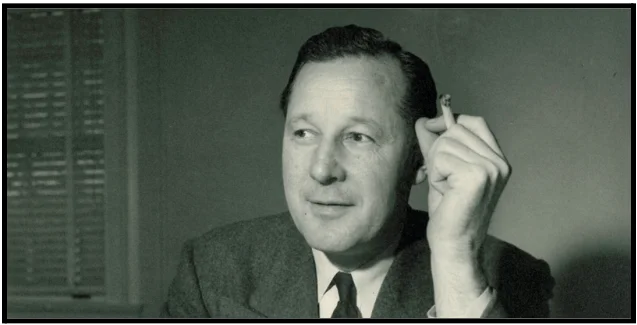Talking Big Ideas.
“Your credibility will rise or fall during Q&A.”
~ Tim Koegel, The Exceptional Presenter
We have to answer questions all the time.
They come to us in casual conversations and formal work meetings. They’re an integral part of panels, podcasts, media interviews, and court appearances. We usually get them after our speeches.
Q&A sessions are often the most exciting part of an event for the audience. And the direct interaction helps presenters build relationships and elevate their credibility.
Yet I find most people fail to prepare for Q&A. They end up rambling and losing much of the goodwill they built during their speech.
I encourage you to take it seriously. Q&A is a unique opportunity to build your brand and advance the ideas, products, and organizations that matter most to you. Below are best practices to help make sure you crush your next Q&A session.
HOW TO PREPARE
Capture Questions Early
As soon as you start pulling together content for an upcoming presentation include a section at the end called Q&A. Think about the potential questions you could get. Write them out and save them.
Consider The Context
Who will be in the audience? Why are they interested in your talk? What current or upcoming news events may have their attention? Given all this, what questions are they likely to ask you?
Think Through Your Answers
Have good answers to all your potential questions. Save your questions and answers together. Default to having the answers be 30 seconds to 2 minutes long.
Craft your answers using the S.E.R. Formula.
The S.E.R Formula:
Statement: Front load a direct answer. Be as simple and clear as possible. See if you can do it in one sentence.
Example: Bring your answer to life with a concrete example. A short story, anecdote, analogy, visualization, vivid detail, etc.
Relevance: Quickly explain why it matters for your audience.
Example:
Question: I’m busy. Why should I take the time to prepare for Q&A?
Statement: Your Q&A may end up being the most important part of your presentation.
Example: Dialogue is often more memorable than monologue. Last month I had a client tell me how she crushed her Q&A. The audience was super engaged and several of them came up afterwards to talk about partnering on her project. She attributes her Q&A prep for the success she had.
Relevance: You will get questions after your talks. Your ability to answer them effectively will largely determine the success and impact you have.
Statement → Example → Relevance
Highlight What Matters Most
What do you want everyone to walk away remembering? Use Q&A to help drive home your big ideas, proverbs, and key stories.
Save Some of Your Best Stuff for Q&A
Don’t put everything into your speech. Save some gems just for Q&A.
Keep Your Speaking Style
Use your same voice, eye contact, and delivery style. Don’t sound like a different person when Q&A starts.
Practice Q&A Alongside Your Talk
Integrate Q&A with the rest of your prep. Role play with colleagues. Have them ask the questions you came up with. And have them come up with their own questions and curve balls.
Get Good Feedback
Update and refine your questions and answers based on feedback during your practice sessions. Save good questions from your colleagues. Use feedback to help you improve your answers.
GAME DAY GUIDANCE
Keep Speaking to the Entire Audience
Don’t just focus on the person asking the question. Keep your whole audience engaged through your eye contact and stage presence.
Step Forward
We often slouch or become non-verbally disengaged during Q&A. Resist this. With uncomfortable or tough questions we can physically withdraw. Do the opposite: step forward with confidence.
Stay in Control
Don’t let a questioner hijack your event by rambling or luring you down rabbit holes. If there’s not a moderator to help you then it’s your job to moderate. Interrupt long-winded questions to keep the conversation on track. Practice doing this in your practice sessions before the event.
Repeat, Rephrase, Reframe
Repeat questions you think the audience couldn’t hear clearly. Rephrase any question that is long, technical, or confusing into something more simple and clear. And if the question is unfairly negative, reframe to capture its spirit without repeating the negative.
Example of a Reframe:
“Why do you support policies that hurt poor people?” Instead of repeating this or letting it go unchallenged, consider something like: “The question is about the policies we support and how they affect people in need . . . .”
Be Respectful
Stay calm and positive even if your questioner is not. If you become defensive or rude, you alienate people and harm your brand. Remember that your audience isn’t the person asking the question, it’s everyone in the room – and likely many others that will listen to and watch the recording afterwards.
Ask Your Own Questions
You may have to help get the ball rolling. Have several questions ready to go in case your audience is timid. “A question I’m often asked…”
Be Willing to Play Quarterback
If you don’t know the answer, don’t fake it! Toss the question to someone else in the room, or to the audience, or to yourself in the future: “I don’t know the answer but I’ll find out and get back to you.” As Stanford professor James Wagstaffe says, “it’s always better to acknowledge your ignorance than to demonstrate it.”
Have a Second Conclusion
Never end your event with the final question. Don’t leave your last impression to chance. Once Q&A is over, have a brief second conclusion ready to go. Crush the ending – for a second time.
Stay Afterwards
Make yourself available for anyone that would like to connect after the event is over. Be approachable and engage with whoever sticks around. Have extra business cards ready to share.
Lessons Learned
Q&A is a goldmine on how to improve your talks. Which of your ideas and stories resonated most? What did your audience find confusing? How did your humor land? Where is your own thinking still fuzzy? Which sections of your talk should be expanded? Which should be cut? How specifically can you do better next time?
Take detailed notes on your lessons learned so you can review them when preparing for your next talk. Be honest, compassionate, and specific.
***
![]() IDEA
IDEA
Put effort into practicing for Q&A.
Consider an upcoming presentation or conversation you’ll have soon. What’s one question you’re likely to be asked? If you absolutely knocked your answer out of the park, what would that look like?
***
For more like this:
If you find this useful, please subscribe to our free weekly newsletter.




